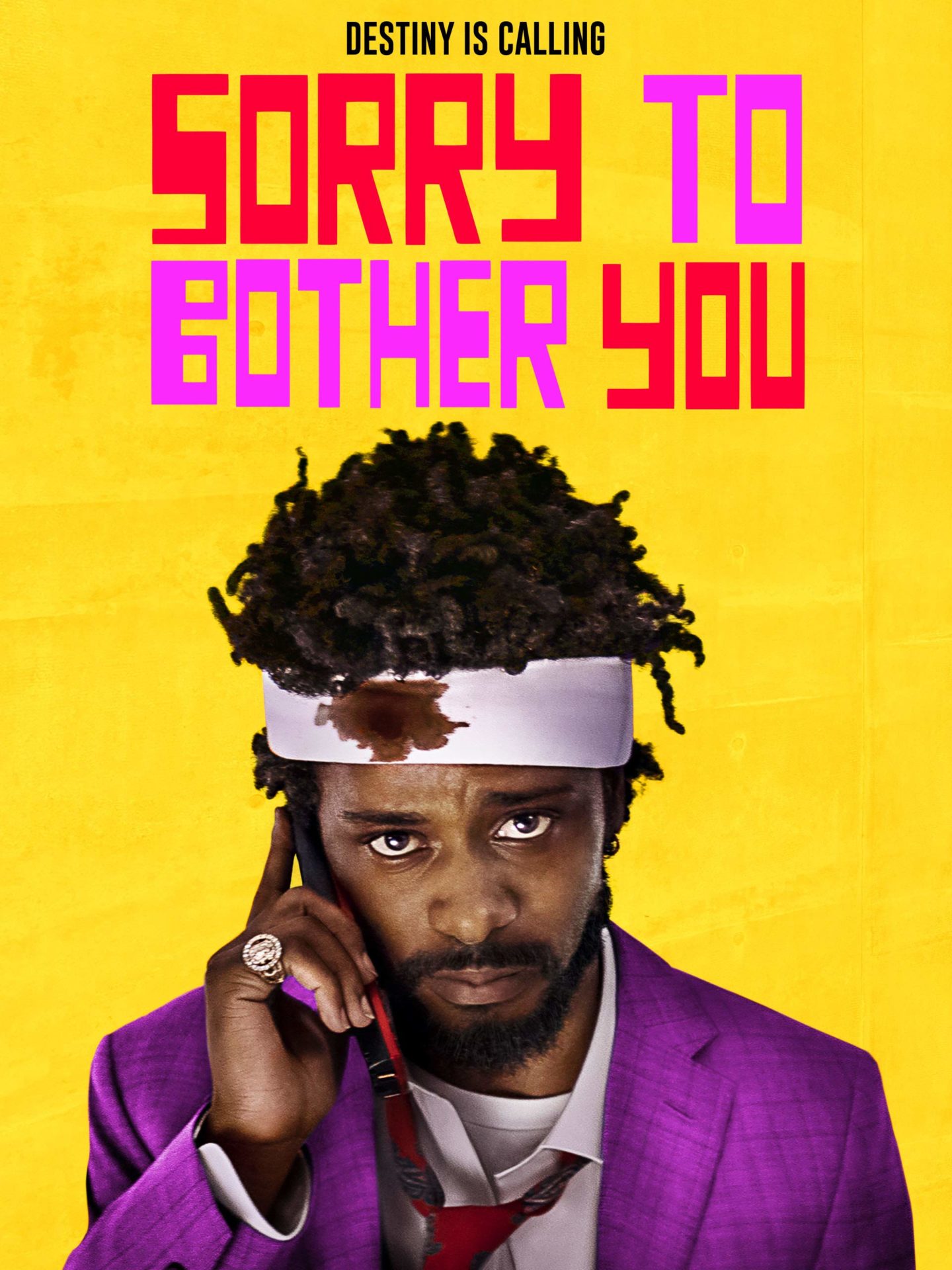Before I ever saw “Sorry to Bother You”, hip-hop artist-cum-filmmaker Boots Riley’s hilarious, transgressive satire, I had heard it compared to Terry Gilliam’s “Brazil”, which sounded great — “Brazil” is probably my favorite movie of all time. I love how deftly it mixes dystopic satire with absurdism, tragedy with comedy.
Its also interesting because director Terry Gilliam has gone on record that “Brazil” (if you haven’t seen it, I’ll give you the length of this parenthetical to rent it from your local video store and watch it before continuing) is no longer relevant, and that its tale of the dream-crushing capabilities of corporate bureaucracy is out of touch with modern times. Gilliam has tried, then, to make what he called a “Brazil” for today, which was called “Zero Theorem”, and which was awful. But that’s ok, because Boots Riley has, whether he meant to or not, given us a “Brazil” for these modern times.
“Sorry to Bother You”, to the extent that it can be described, is about Cassius Green (Lakeith Stanfield, also in last year’s similar “Get Out”) who eagerly takes a job at a telemarketing company called Regalview. He’s told two things: to stick to the script, always, and that if he performs well enough he will get a job upstairs with the Power Callers, mysterious moguls who make millions selling… something. An aging coworker (Danny Glover) tells him that there is one unambiguous secret to success as a telemarketer; you have to put on a “white voice”. He tries it and finds that he’s got a prodigious talent for it. He starts making more money, gaining more praise from his bosses at Regalview. His girlfriend Detroit (Tessa Thompson) is an artist and a burgeoning revolutionary, and his friends at Regalview are threatening to strike if they don’t get better pay, but Cassius seems destined to be a Power Caller, with all the moral compromise that may entail.
That plot synopsis gets you about halfway through the movie, but where it goes in its second-half has to be seen to be believed. Suffice it to say that even at its weirdest, Boots Riley (who wrote and directed) has some interesting stuff on his mind — race, class, the stultifying reality of work, the way our ambitions get in the way of our principles, and the way that our identity at work can be something almost entirely different than the way we are in repose.
In case I haven’t made it clear, you really ought to see the hilarious, bizarre and truly surprising “Sorry to Bother You”.




Leave a Reply